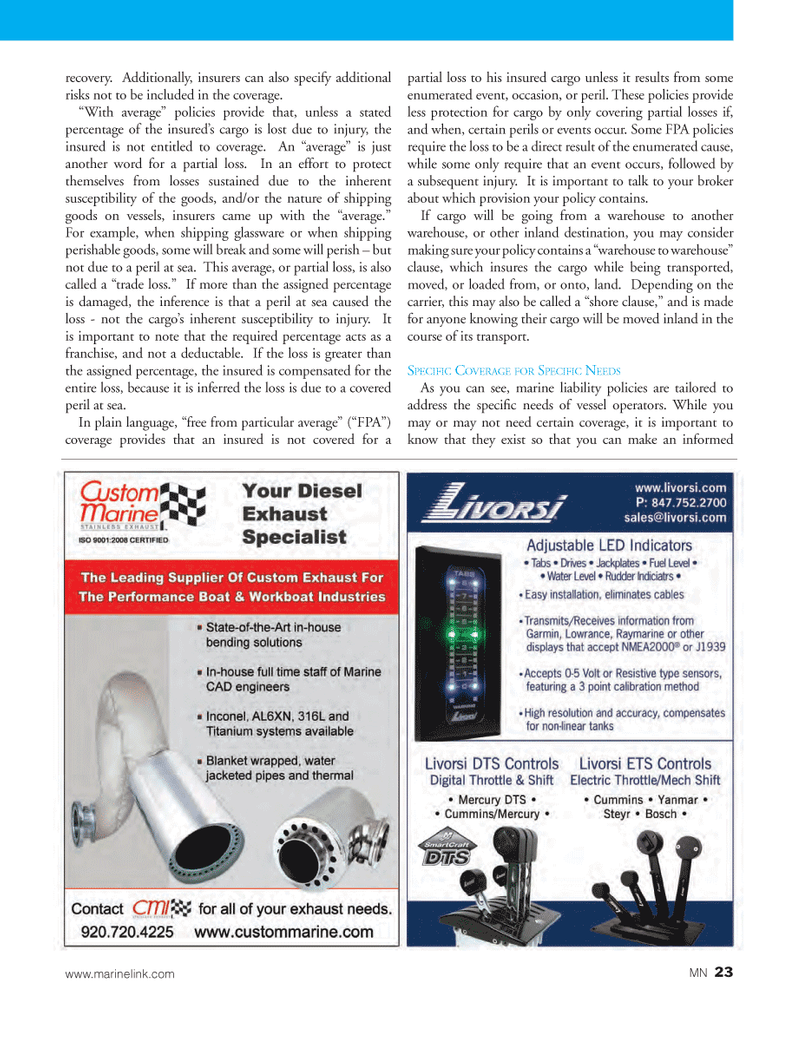
Page 23: of Marine News Magazine (July 2012)
Propulsion Technology
Read this page in Pdf, Flash or Html5 edition of July 2012 Marine News Magazine
recovery. Additionally, insurers can also specify additional risks not to be included in the coverage. ?With average? policies provide that, unless a stated percentage of the insured?s cargo is lost due to injury, the insured is not entitled to coverage. An ?average? is just another word for a partial loss. In an effort to protect themselves from losses sustained due to the inherent susceptibility of the goods, and/or the nature of shipping goods on vessels, insurers came up with the ?average.? For example, when shipping glassware or when shipping perishable goods, some will break and some will perish ? but not due to a peril at sea. This average, or partial loss, is also called a ?trade loss.? If more than the assigned percentage is damaged, the inference is that a peril at sea caused the loss - not the cargo?s inherent susceptibility to injury. It is important to note that the required percentage acts as a franchise, and not a deductable. If the loss is greater than the assigned percentage, the insured is compensated for the entire loss, because it is inferred the loss is due to a covered peril at sea. In plain language, ?free from particular average? (?FPA?) coverage provides that an insured is not covered for a partial loss to his insured cargo unless it results from some enumerated event, occasion, or peril. These policies provide less protection for cargo by only covering partial losses if, and when, certain perils or events occur. Some FPA policies require the loss to be a direct result of the enumerated cause, while some only require that an event occurs, followed by a subsequent injury. It is important to talk to your broker about which provision your policy contains. If cargo will be going from a warehouse to another warehouse, or other inland destination, you may consider making sure your policy contains a ?warehouse to warehouse? clause, which insures the cargo while being transported, moved, or loaded from, or onto, land. Depending on the carrier, this may also be called a ?shore clause,? and is made for anyone knowing their cargo will be moved inland in the course of its transport. SPECIFIC COVERAGE FOR SPECIFIC NEEDSAs you can see, marine liability policies are tailored to address the speci c needs of vessel operators. While you may or may not need certain coverage, it is important to know that they exist so that you can make an informed www.marinelink.com MN 23

 22
22

 24
24
